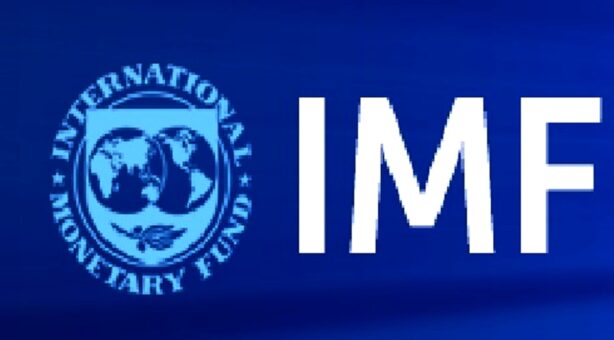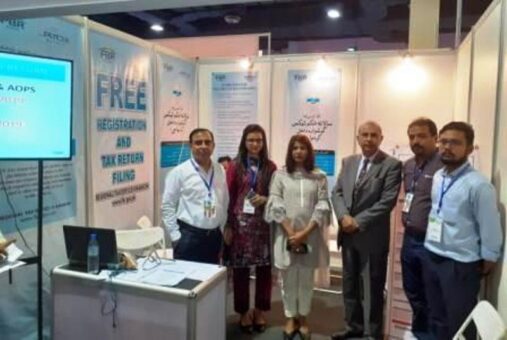KARACHI: Federal Board of Revenue (FBR) has introduced a simplified wizard based income tax return filing mechanism to its Tax Asaan mobile application.
This feature will help taxpayer to proceed step by step utilizing interactive questions for return filing, even familiarizing the taxpayer with the various issues related to tax and giving the best possible experience to file IT Return.
The FBR said that the wizard based solution takes care of Salaried Individual Income Tax Return for resident/non-Resident taxpayers.
The mobile application enables the taxpayer to draft the return offline giving them freedom and flexibility to file their return at their own convenience anywhere and at any time however to perform calculations and in order to submit the IT Return, internet connectivity is required by the application.
The FBR said that Tax Asaan is available for both Android and iOS platforms for free download and gets installed on one tap. Once installed, you can find the application icon under your mobile Apps list. Simply tap on the application icon to get started and view the home screen as shown below:
Signing On
“Income Tax Return’ module can only be used after successful login. Registered user can Sign-In to application by using their valid account credentials to file Income Tax Return.
Following are the steps to login/Sign-In Tax Asaan mobile application:
Click on the hamburger button provided on the top right corner of the home screen to view the main menu. The application will load a left panel with list of all available features along with the option to sign-in.
Tap on “Sign in” option from the left panel to navigate to the Sign in screen as shown below:
Enter “User Name” and “Password” then click on Login button to sign in as shown below:
Please note that you will need to use Login ID and Password as that of Iris. If you are not registered with FBR on Iris then use Iris Web portal for New Registration.
Income Tax Return
On successful sign in, the registered user name will appear on left panel replacing the “Sign In” option along with the available option of “Income Tax Return” for the signed in user as shown below:
User can reach Income Tax Return page either from click on “Income tax Return” menu option from the left panel or can directly click on “Income Tax Return” tile from main dashboard as shown below:
Income Tax Return for Resident Pakistani Taxpayers
After successful login to Tax Asaan mobile application, follow these easy steps to file Income Tax Return:
Tap on Income Tax Return tab, Application will redirect user on Income Tax Return year selection page as shown below:
Click on any of the provided Tax year options shown on the screen to file income tax return for the selected tax year. Application will mark the tax year selection by highlighting the tax year and will redirect user on resident status screen as shown below:
Click on “Resident” (or “Non-Resident”) tile to select the desired category, application will load sources of income page as residence status selection as shown below:
To enter data under relevant source of income click on desired source tile i.e. “I have salary” as shown below:
[Please note that in case no source of income or to skip this step enable the check provided as “I don’t have any source of income” and click continue to move to next step.]
As soon as taxpayer click on any of the provided source of income options, the application will redirect taxpayer on data entry page of selected source as shown below:
Enter details in provided fields and click “Ok”, application will save provided data and redirect user back to source of income page. You can add data against multiple source of income by repeating the same process and selecting each source of income one by one. Once you add data under any source of income, the application will load edit and delete option to modify or remove the data entered under that category / source as shown below:
To edit data added under the specific source of income click on edit button, the application will redirect taxpayer on edit source of income information page. Similarly you can edit or delete specific records under the source by using the edit option provided in front of each record added as shown below:
To delete all information under a specific source of income click on delete button as shown below, the application will remove all records added under the selected source.
[Please note that the system will not show edit/delete buttons for a source if there is NO record added under the selected category.]
After adding all information for the source of income click on “continue” button to move on next step for return filing as shown below:
[Please note that you can go back to previous step i.e. source of income page by using back button.]
Next step after adding source of income is to add Tax deductions. Click on desired option to enter tax deductions detail as shown below:
Application will redirect user on details page of selected tax deduction option i.e. Vehicle Token as shown below:
Add details of tax deduction under selected option. You can click on “Add Another” button to add multiple records. After adding details click on “Back” button to go back to the tax deductions main page. You can add data against multiple tax deduction options by repeating the same steps. you can click on “Save and Back” button to move back to Tax Deductions page.
After adding all details under tax deductions, click on “Continue” button to move on to the next step for filing tax return as shown below:
Application will redirect user on “Wealth Statement” page as shown below:
Tap on Assets icon, Application will redirect the tax payer to Assets Declaration page as shown below:
Click on “Net Assets Previous Years” icon to enter net worth of your Assets for previous years, the application will open following page:
Enter Net amount (in PKR) of previous year assets in provided field for Amount.
Click on OK button to add the amount, the application will redirect taxpayer back to assets declaration screen.
Edit and Delete buttons will now appear below “Net Assets Previous Years” icon as shown below:
In order to edit the saved details click on Edit Button below Net Assets Previous Years icon the application will redirect tax payer to Edit Net Assets Previous Years page.
Edit the amount as needed and to save the updates click on OK button.
To cancel the updated details click on Cancel Button.
To delete all the saved details click on Delete button below Net Assets Previous Years icon.
Click on Inflows icon to enter net worth of your Assets for current year, the application will open following page:
Enter Net amount (in PKR) of Inflows in Text field labelled Amount.
Click on OK button to add the amount, the application will redirect taxpayer back to assets declaration screen.
Just like “Assets” click on “Expenses” icon to add details of expenses as shown below:
Application will redirect user on add expenses page. Add the total amount of expenses for the selected Tax year and click “OK” button to save the value as shown below:
After adding details of Assets and expenses, click on Continue button to reconcile assets. Application will load reconciliation page as shown below:
[Please note that if application load reconciliation error then click on back button to edit and correct assets record in order to remove error and process again.]
On successful reconciliation, click on continue button to move to next step for filing return. Application will redirect user on declaration screen as shown below:
Click on “Submit” button to submit return. Please note that once submitted, you will not be able to do any further modification in return. On successfully submitting return application will redirect user on return summary report with a success message as shown below:
You can also view the summary at any stage (during Return preparation) by Clicking the icon.
Income Tax Return for Non-Resident Pakistani Taxpayers
To file Income Tax Return as Non-resident taxpayer, the process of return filing will remain same as of resident taxpayer. Only the tax payer has to select the option as “Non-resident” from the application screen after selection of Tax Year as shown below:
[Please note the all steps of return filing are pre-configured and will appear accordingly as per user’s selected option.]
View Income Tax Return Summary
Tax payer can view the summary of all entered information in income tax return at any time or step during the return filing process. To view return summary, click on the expand options icon on top left corner of the screen as shown below:
Attach Payments
In case the taxpayer has some income tax due i.e. payable at the time of reconciling Assets, then application will redirect user on “Attach Payments” screen before submitting the return as shown below:
Taxpayer can attach multiple CPRs against the due amount however application will only allow taxpayer to submit return after attaching CPRs equivalent or greater than the due tax amount.
Special Instructions for ERROR Correction
In case user is unable to view all menu options in left panel or only “Sign In” option is listed in left panel then there must be some issue with the internet connectivity. To resolve this error, check internet connectivity and Close and Re-Run Tax Asaan mobile application.
Reporting
This system does not support any reporting capability right now however users can only view information specific to provided NTN/Registration Numbers as per available inquiry features in Tax Asaan mobile application.




